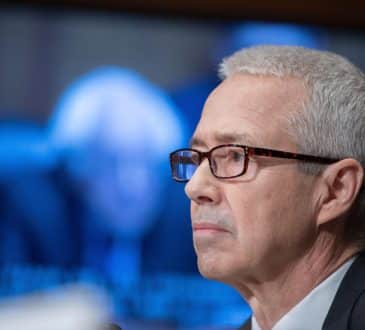Unlocking the HR Secrets of Hybrid Work

The COVID-19 pandemic has fundamentally altered the nature of work, compelling companies to adapt to remote and hybrid models. As organizations look to the future, leaders are grappling with how to adapt their workplaces and cultures to this new reality. To provide a more nuanced understanding, I interviewed three HR leaders: Tony DeBlauwe of Celigo, René Allen of Hagar’s Sisters, and Sheri Paulo of Employment Practices Solutions, Inc.
The Multifaceted Benefits and Challenges of Remote Work
All three HR leaders agree that remote work has its merits, but they each highlight different aspects. Tony DeBlauwe of Celigo and René Allen of Hagar’s Sisters both note increased productivity as a significant benefit. DeBlauwe attributes this to the flexibility that remote work offers, allowing employees to tailor their work environments to their needs. Allen, on the other hand, observes that the mental health of employees improved initially due to the perceived autonomy they have in the use of their time, which in turn contributed to increased productivity.
Sheri Paulo of Employment Practices Solutions, Inc. emphasizes employee satisfaction and work-life balance as key benefits. She points out that these benefits not only support productivity but also contribute to talent retention. Furthermore, Paulo adds that these benefits correlate to cost savings and improved organizational performance, providing a multi-layered advantage for companies.
Still, challenges are present. DeBlauwe cites the lack of in-office presence as a significant challenge, explaining that the CEO of Celigo championed office-centric work for its “buzz” and ability to foster camaraderie. Allen elaborates that communication of schedules was a big challenge in the initial stages of remote work. She points out that both leadership and management exhibited fear of the unknown, often expressing concerns like ‘how do we know remote employees are working.’
Sheri Paulo identifies managerial capability and leadership buy-in as significant hurdles in the effective implementation of remote work. She emphasizes that “effectively working differently” is critical to the long-term success of a hybrid/remote culture. Paulo notes that managerial skills need to adapt to this new environment, and leadership must be convinced to shift the work culture, which creates big challenges.
Both Allen and Paulo point to the challenge of maintaining employee engagement in a remote setting. Allen observes that the mental health and ‘presence’ of remote employees can plateau and even decline over time due to a lack of engagement and deterioration of trust from management. Paulo concurs, stating that maintaining employee engagement is one of the big challenges in a remote work setting.
Operational Adaptations: A Three-Pronged Approach
Tony DeBlauwe focuses on the power of positive incentives to adapt to the new work environment. He believes that blanket policies mandating set office days could backfire, leading to decreased morale and potential attrition. Instead, DeBlauwe emphasizes the importance of mentorship programs, social events, and addressing the specific needs of remote workers. These positive incentives aim to foster a sense of community and belonging among employees, thereby enhancing productivity and job satisfaction.
René Allen has taken a more structured approach to operational adaptations. She has implemented an Operational Calendar and a comprehensive hybrid/remote work policy. These tools serve as the backbone for communication and work schedules, addressing one of the significant challenges she identified. Allen also utilized existing tools like MS Teams and staff meetings to improve communication. She has developed and held trainings to address management issues, providing a multi-faceted strategy to tackle the challenges of remote work.
Sheri Paulo suggests that ongoing development focused on work, communication, and engagement skills will be crucial for the long-term success of remote work. She believes that much of this can be done internally through the Learning & Development (L&D) organization. However, she also notes that the expertise for the content of these programs may need to come from outside support. Paulo adds that to gain buy-in and traction, the business case for leveraging a hybrid/remote work culture needs development. She acknowledges that in some cases, HR may lack the tools and sophistication to present these details to leadership convincingly. Therefore, outside support may be necessary to build a compelling case for long-term change in work culture.
Cultural Nuances
Tony DeBlauwe highlights the generational differences that have become more pronounced in the remote work setting. He observes that younger workers, particularly those from the Millennial and Gen Z cohorts, have different expectations for recognition and validation. Conditioned on constant encouragement, these younger employees often seek recognition for basic tasks, which leaders from older generations may interpret as a lack of work ethic. DeBlauwe suggests that understanding these generational nuances is essential for fostering a cohesive work environment.
René Allen emphasizes the proactive role that HR must play in this new landscape, especially when it comes to training and budget planning. She notes that HR’s role in the evolution of hybrid/remote work includes training new managers on how to manage their remote teams effectively. Allen also stresses the importance of HR being active in budget planning processes to include the necessary resources for these new operational models. This involves not just the allocation of funds but also the strategic planning of resource deployment to address generational and cultural nuances.
Sheri Paulo adds another layer to this discussion by emphasizing the importance of external expertise. She notes that HR leaders will continue to seek knowledge, data, trends, and solutions to address the challenges brought on by hybrid/remote work. Paulo suggests that while some internal data and resources can be leveraged, finding professional forums and experts to engage with will be critical. This is especially important for understanding and addressing the generational and cultural nuances that become more complex in a remote work environment.
The Future of Work
DeBlauwe and Allen see hybrid work as a permanent fixture. DeBlauwe advises companies to seek balance between leadership preferences and employee needs, using data to guide policies. Allen foresees the expansion of hybrid/remote teams as new sites open. Paulo foresees hybrid/remote work as a driving aspect of talent retention and attraction but notes that organizational leadership struggles with fully embracing it as a way to improve performance and transform culture in a positive way.
Similarly to Paolo, I’ve seen serious struggles by managers in the over two dozen organizations I helped transition to hybrid work. Used to “management by walking around,” these managers have to adopt a new mindset and get effective training and coaching on how to manage hybrid teams.
The path forward requires a multifaceted approach, incorporating compassion, flexibility, data-driven adaptation, and patience. With intentional efforts, companies can build cultures where every generation recognizes their role in shared mission and success. By integrating the insights from these three HR leaders, organizations can develop a more comprehensive strategy for navigating the complexities of the post-pandemic workplace.
Have you read?
Scorecard: These are the world’s top manufacturing countries, 2023.
Ranked: These Are The countries With The Highest Inflation Rate.
Ranked: 20 of the world’s youngest billionaires in 2023.
Countries and Territories Without Standing Military Forces.
Countries that need nurses and midwives the most, 2023.
Add CEOWORLD magazine to your Google News feed.
Follow CEOWORLD magazine headlines on: Google News, LinkedIn, Twitter, and Facebook.
This report/news/ranking/statistics has been prepared only for general guidance on matters of interest and does not constitute professional advice. You should not act upon the information contained in this publication without obtaining specific professional advice. No representation or warranty (express or implied) is given as to the accuracy or completeness of the information contained in this publication, and, to the extent permitted by law, CEOWORLD magazine does not accept or assume any liability, responsibility or duty of care for any consequences of you or anyone else acting, or refraining to act, in reliance on the information contained in this publication or for any decision based on it.
Copyright 2024 The CEOWORLD magazine. All rights reserved. This material (and any extract from it) must not be copied, redistributed or placed on any website, without CEOWORLD magazine' prior written consent. For media queries, please contact: info@ceoworld.biz
SUBSCRIBE NEWSLETTER








